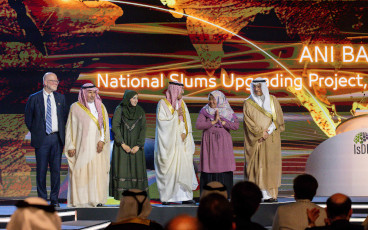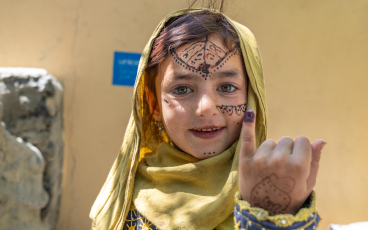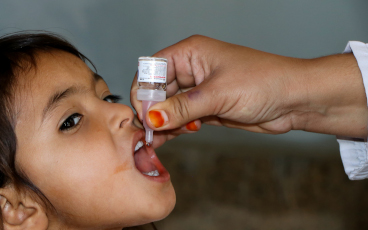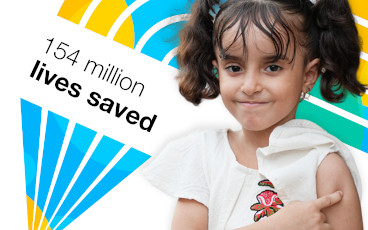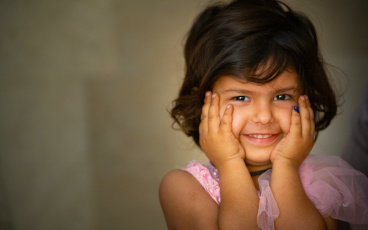Five change makers in the Eastern Mediterranean’s polio eradication programme
The Global Polio Eradication Initiative (GPEI) stands tall on the foundation of millions of women’s efforts and voices.
Supporting vaccine equity
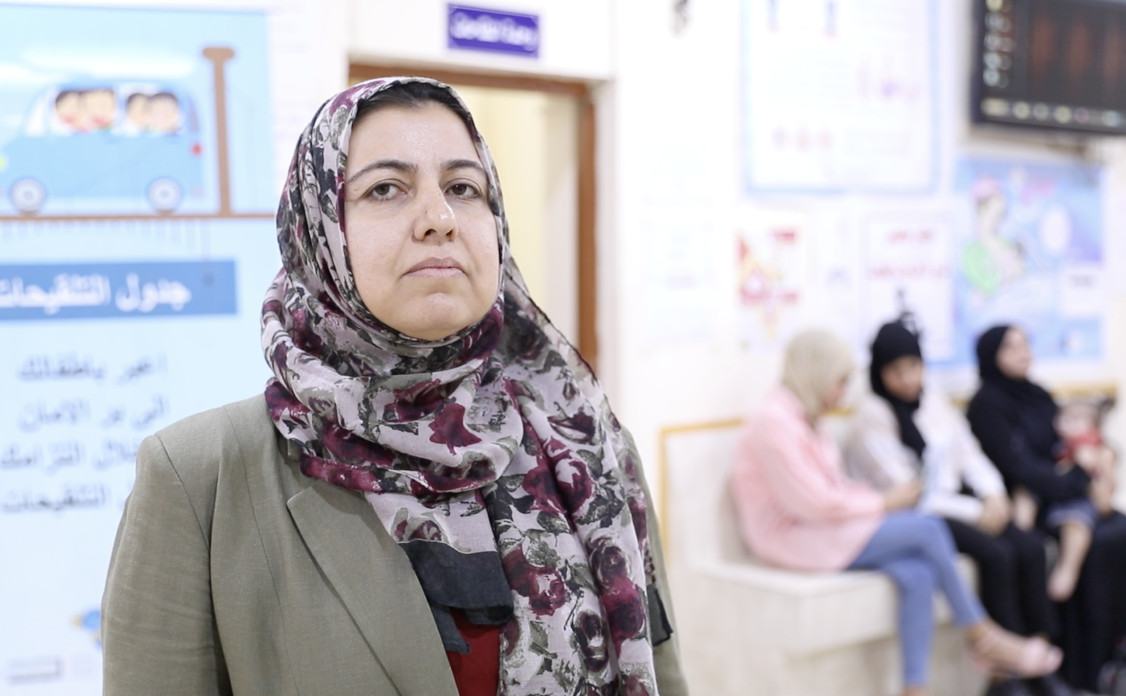
As an epidemiologist in Iraq with 25 years’ experience eight of which were in immunization, Dr Israa Tariq Mahmoud is responsible for providing vaccines to all health centres and institutions that work within the Rasafa District of Baghdad. She also follows up on the availability and distribution of vaccines to ensure they reach children across the area she covers.
Dr Israa chose to work in immunization as it would allow her to build relationships with the children and families in her community. She feels a strong sense of social justice in her efforts to ensure that all children, regardless of their social status, have equal access to vaccination.
She adds that she and her colleagues who are health care workers are all cogs in the chain of efforts required to eradicate polio, from surveillance to vaccine follow-up. That follow-up includes checking that children have taken all doses of the vaccine and monitoring for any adverse events following immunization (AEFIs). They also conduct disease surveillance as they visit children’s homes.
Dr Israa says she feels the same drive a parent or caregiver does when they look after their own child. She has advice for health workers, especially young ones: “We all, males and females, have a role, no matter how small, in building our country.”
Delivering health on wheels
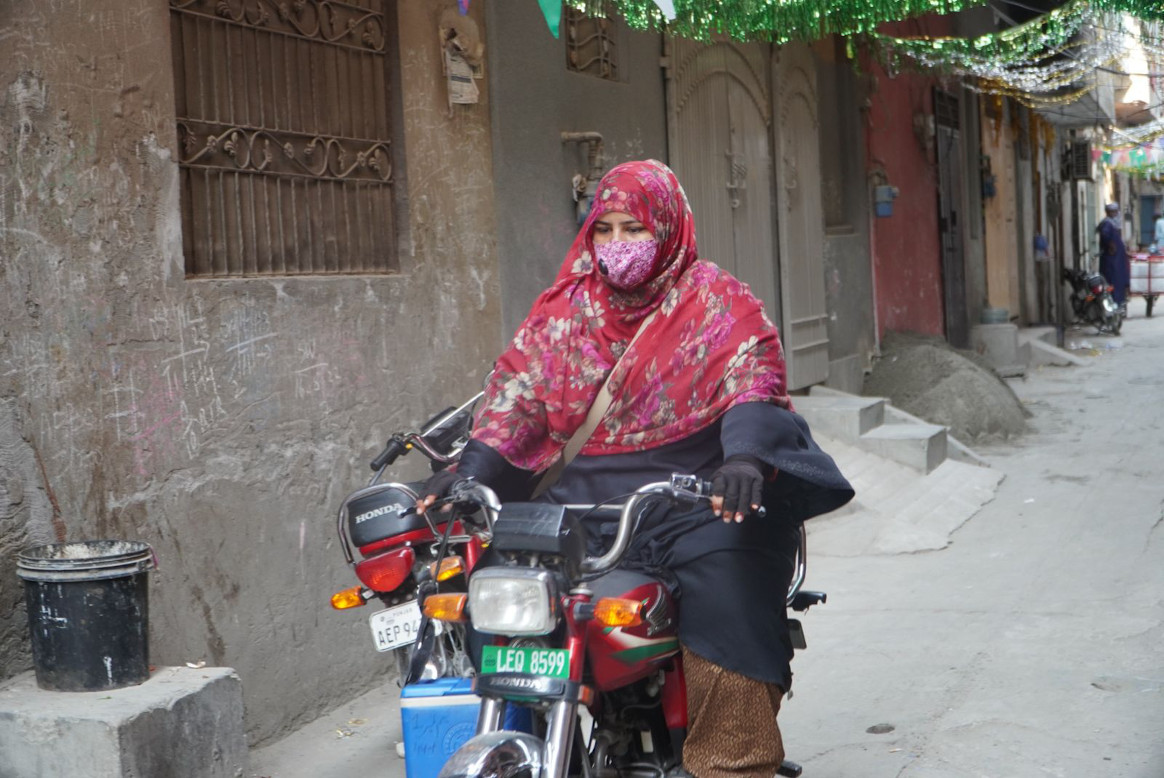
Defying norms take guts – which Shiza Ilyas has no shortage of. Ten years ago, she joined Pakistan’s polio eradication programme in Lahore as a vaccinator to support her family after her father, the main breadwinner, passed away. Going from one door to another, talking to families, and protecting children from lifelong disability has brought her both purpose and peace.
Shiza is the first woman to serve as Area-in-Charge in Lahore. Responsible for running vaccination campaigns in Lahore’s Union Council 44, she is well known and respected among her peers. More extraordinarily though, she carries out her vaccination duties on a motorbike – a rare sight in Pakistan.
When Shiza expressed interest in serving as an Area-in-Charge, her supervisor chuckled and said no woman in Lahore had ever wanted to take on this role before. At the very least, he said, she would need to be on a motorbike to travel long distances and check on polio teams.
With support from her grandfather, and eventually her mother, and with riding instructions from a cousin, Shiza was soon whizzing through the streets, after a quick stop at her supervisor’s office.
Shiza’s work involves supervising polio campaigns in her area and checking in on teams during the day as they go from house to house. She tallies their data and at the end of the day, if any children have been missed, she personally visits their houses and vaccinates them.
“I never paid attention to negative comments from anyone about being a woman on a bike,” she says. “I always believed in myself and did what I wanted to do.”
“When you put polio drops in a child’s mouth, you feel happiness inside, happiness that you have saved a child,” she says. “I urge people to come and work for this feeling. This work brings a lot of peace.”
When vaccination involves detective work
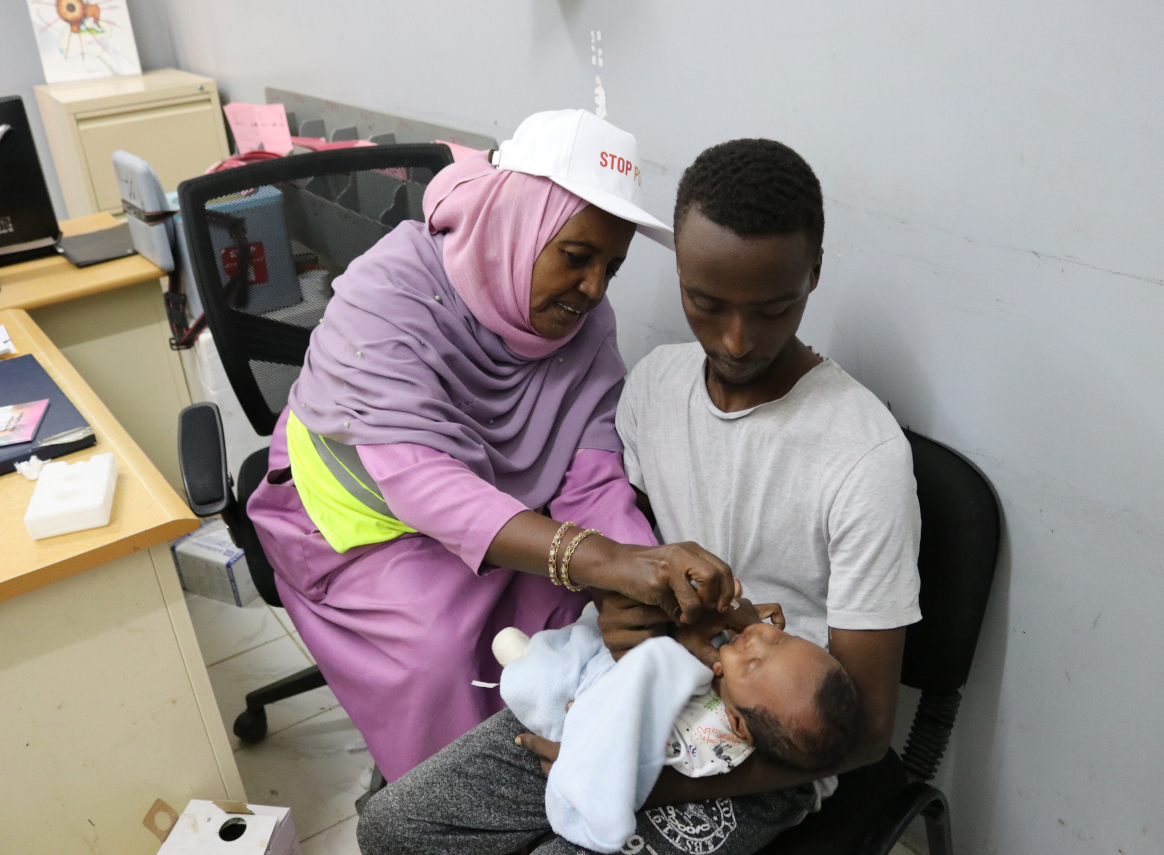
In Djibouti, every day, Houda Houssein Okeih vaccinates people who visit the health facility where she has been working since 2015. During polio vaccination campaigns, she focuses her efforts on children under five years of age.
Working with parents, mothers, and their children on a daily basis has made Houda a popular figure in the neighbourhood. With 20 years of experience as a nursing assistant, Houda is known for her outspokenness, clarity and passion for engaging mothers. She makes a point of ensuring that parents know and follow vaccination schedules and keep records. Sometimes, she needs to pester them a little, she adds, laughing, so that parents take timely vaccination seriously.
Houda enjoys being among the community. To follow up with her patients, she often scouts the neighbourhood, similar to a detective, to look for families who haven’t followed their children’s vaccination schedule. She then directs them to her health facility, to encourage them to vaccinate their children and give them a healthier and brighter future.
Inspired by a television programme
Over in Afghanistan, Farida* is a vaccinator who is pleased to be serving her community through polio campaigns.
Farida feels lucky to be contributing to eradicating polio. The best part of this job, she says, is that she can see the impact of her efforts to prevent Afghan children from becoming paralyzed. In 2022 to date, just two children have developed paralytic polio in Afghanistan.
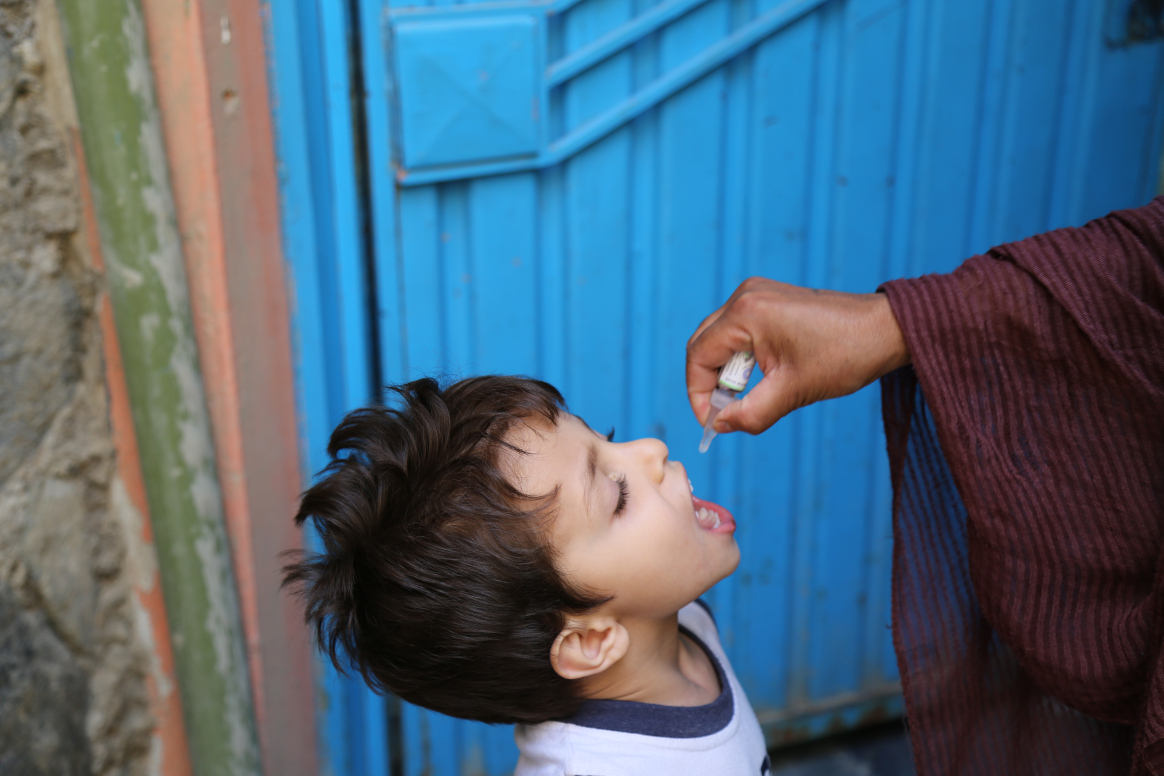
Farida was inspired to work as a vaccinator after she watched a television programme that depicted children paralyzed by polio. The story of these children’s lives and struggles resonated with her and gave her a sense of professional purpose.
In efforts to support women like Farida to play an important role in polio eradication, the GPEI in 2019 endorsed a Gender Equality Strategy. It also aims to promote the integration of a gender perspective into programming, and to support countries to address gender-related barriers to vaccination.
In WHO’s Eastern Mediterranean Region, the polio eradication programme is working on addressing gender-related barriers to vaccination of children and surveillance for poliovirus. To this end, two Technical Advisory Group (TAG) meetings recently conducted for Afghanistan and Pakistan, the countries where the wild poliovirus is still endemic, also provided guidance on integrating solutions to gender-related barriers into eradication efforts.
Mounting speedy responses by rapid testing
When she was young, Dr Nabila Mohammed Al Moalimi dreamt of being a pediatrician. But when her father was misdiagnosed and given the wrong medical treatment, she decided to play a role in strengthening her country’s laboratories. Now, Dr Nabila serves as the Director of the Molecular Biology Department in Sana’a, Yemen.
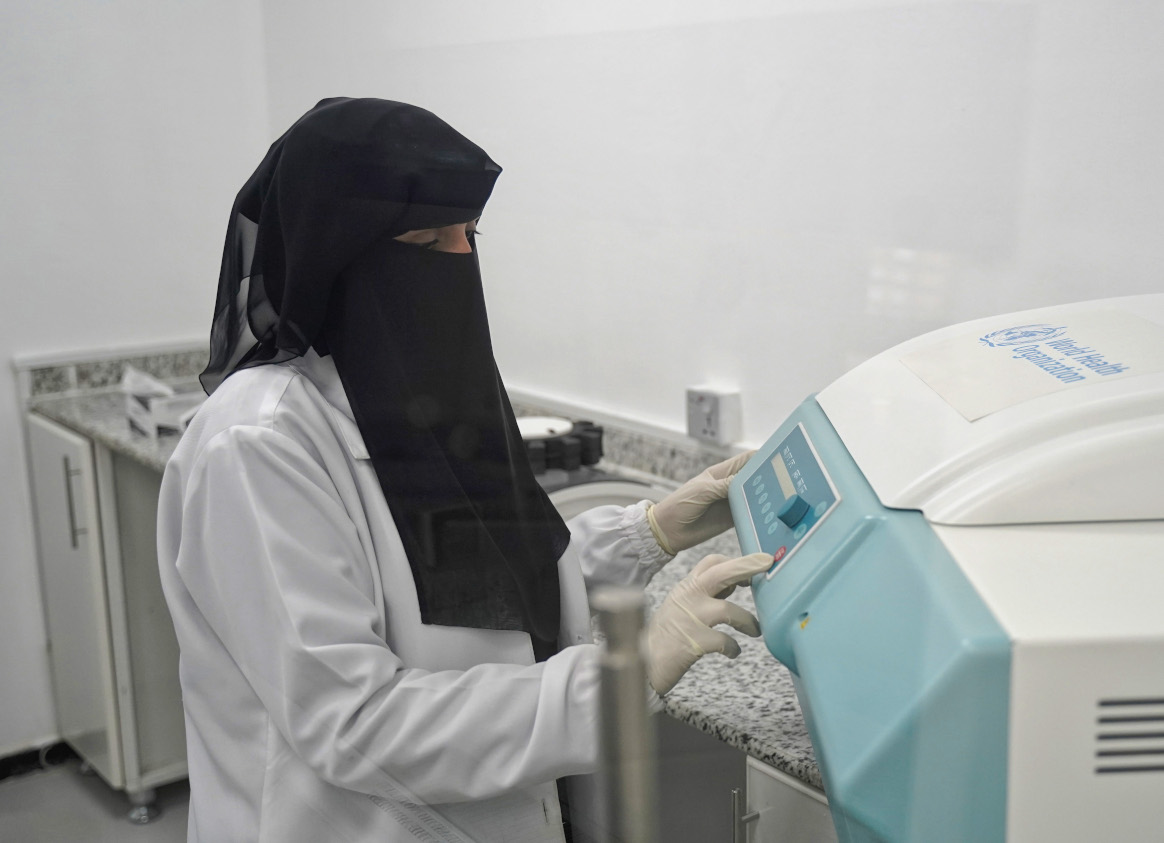
After a two-week training session in a polio laboratory in Pakistan, Dr Nabila and a colleague returned to Yemen to start up a new laboratory division in the Ministry of Health’s Central Public Health Laboratory, Sana’a. This will solve a major problem for the polio eradication programme in Yemen.
Previously, the polio laboratory in Sana’a would collect polio samples and ship them to the Regional Reference Lab in Cairo, Egypt, for testing – all with no delays. But after the war broke out, stool samples had to be sent to the KEMRI laboratory in Nairobi, Kenya. The return of results could take up to three months – a costly delay that could exacerbate the spread of polio outbreaks.
During her mission to Pakistan, Dr Nabila and her colleague were trained in conducting rapid tests to flag polio infection in stool samples before sending them to a laboratory from the WHO-accredited Global Polio Laboratories Network for poliovirus diagnosis. In the event a sample tests positive, the team can now immediately alert technical experts and health authorities to plan a response. This response can include testing samples from contacts of the child who tested positive for polio, and vaccinating children to boost their immunity in affected locations. This response, especially when done quickly, prevents further spread of polioviruses.
Thanks to the expertise of Dr Nabila and her colleague, alongside several others, the polio laboratory in Sana’a may soon be able to perform direct detection of poliovirus from stool samples. They can also tell whether a polio virus is wild or a variant type, which informs an appropriate response.



